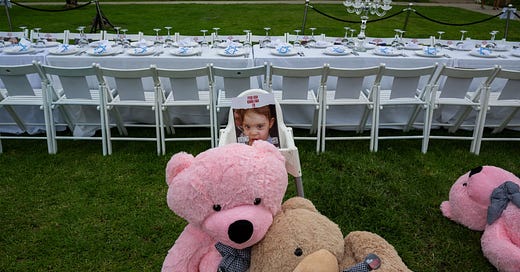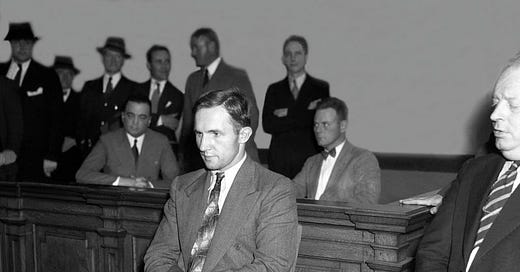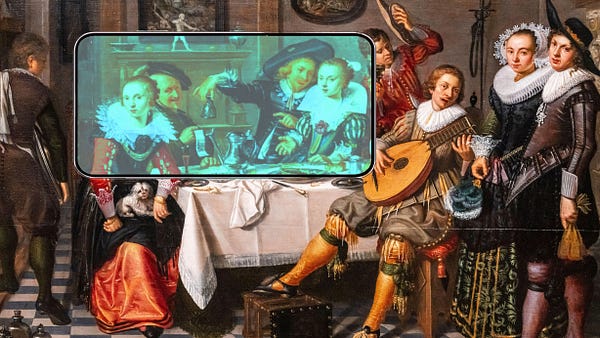
The Free Press

In the morning, my children appear in the kitchen, one by one by one, wiping sleep from their eyes. I embrace them, my beloved children, my Jewish children, my children of Israel, and wonder if they feel the prickling fear emanating from the pores in my skin, the seething, hot rage coursing through my blood, the sorrow radiating from my very being. What would you like, I ask them, and I pour cereal from a box, stir water into flavored oatmeal, slice fruit.
I make my children breakfast.
On the school playground where my daughters gather by grade before their classes begin, I am desperate. All around me, parents chat. The weather. Parent-teacher conferences. The debacle in the House. I cannot join them. If I open my mouth, I will weep. If they ask me about my plans for the upcoming long weekend I will reach for them, cling to them, plead to them through my wild, sleep-deprived, red-rimmed eyes, for help. Did you know that they tied parents to their children? I will ask. That they tortured them like that, bound together by wire? Did you know? But their minds are elsewhere, focused on everyday distractions. I long for that ease, for that safety.
At some dark hour my youngest, awakened from a nightmare, rushes to me and finds my face alight in a screen, which used to be banned in my bedroom at night but isn’t, now. There were sharks, she tells me, at a party on a beach and there was no one to protect us. I pull her body to mine, curl around her delicate limbs and imagine Kfir, the roundness of his beautiful infant flesh. Where does he sleep at night? You are safe, I whisper in my daughter’s ear over and over and over because I just want to believe it, have to believe it, don’t believe it.
I boil water and the electric ring under the pot glares red and I imagine the flames, the heat, the smoke. I pray they were not conscious, those who were huddled, trapped in their safe rooms together as death wended its way into them, through their nostrils and into their lungs, and then finally consumed them. I stir in the rice I will serve my family for dinner.
I shower and imagine Maayan’s father, who is still Maayan’s father even though Maayan was executed in front of him. Has her blood been cleaned from his clothing by his captives in Gaza? Did he or someone else wipe it away? Did he want to keep it there, on his skin, because it was all he had left of his girl?
I wash my hair.
A college student picks my children up from school on Wednesdays and in her bright eyes I see Mia’s. She is begging to come home. I watch as an elderly person slowly makes his way from his seat to the bimah at my synagogue to be honored and I imagine Yaffa, her aged skin, her weary eyes. Who will wait for Yaffa?
At my son’s archery meet, middle schoolers aim colorful bows at round targets and I imagine missiles. At my daughter’s soccer game I watch children charge down a field and I imagine the Tribe of Nova wrenched from their dance-induced haze and sent running into the gunfire of Hamas.
The gunfire and the grenades and the rockets. The bloodshed and the mass death and the torture. The hostages. I imagine it everywhere I go, wherever I am, and I am desperate. How can it be? How can it be? How can it be?
It cannot happen again, my mother told me when I was young, when I began to understand the horrors of the Holocaust, when I heard my clock tick tick tick at night and imagined Nazi soldiers marching down my street. It cannot happen again because of Israel, she said.
Across the globe they chant “gas the Jews,” and I think good, at least they do not hide it. At least they are not pretending. Gas the Jews. Intifada intifada intifada. Glory to the martyrs. Everywhere they shout for a free Palestine and I wonder if anyone anywhere means a Palestine freed from the murderous entrenchment of the terrorist government its citizens chose for themselves. They marched in the first of those rallies as desecrated Jewish bodies lie not yet cold on bedroom floors of ransacked homes. Tell me they aren’t celebrations.
Mainstream newspapers spread blood libel through push notifications. Ding. And a synagogue burns. Cease your fire; halt your fire; stop your fire, they say. Don’t get carried away; it has to be a measured response. Don’t let things get out of hand. Be a good Jew be a quiet Jew be a dead Jew.
When I bemoan the rot that has taken over our college campuses to my father and tell him about my intense fear for what my own children will face, he says perhaps it will be different in seven years in nine years in eleven years and it will be as it was in the ’30s when there were certain colleges Jews could safely attend.
I am glad my children are at Jewish day school, a friend says, and I understand. She does not say it to be cruel, to judge us for choosing our local public schools, for choosing not to insulate our children so that they might be in a community with people who aren’t just like us, just like them, whose seeds were sown elsewhere. How long until self-satisfied teenagers charge down my children’s school hallways gleefully calling for a world in which Israel is extinguished?
At my synagogue, while children write letters to Israelis, parents crowd together in the library and cry as we mourn not only the innocents who were slaughtered and those who are captive, but also the joy we all experienced as Jews in America.
Our rabbis—and my husband is one of them—have spoken movingly for years about being fully American and fully Jewish, about how our synagogue, our community, is a place in which neither identity is ever compromised; we do not visit our Judaism at temple, but rather it is infused into our everyday lives. Through halted, pained expressions of grief we mourn the loss of that grounding joy we believed was our birthright.
Our communal language has shifted to one of mourning. Jewish courage in the face of evil was a history we were told, a grandfather we had, not something we had to contend with in our fully American, fully Jewish lives. We are now in an isolated place, a constricted place, and the foundation upon which our very existence rests has been rocked by barbarism and by a gaslighting world intent on telling us we are the bad guys. Perhaps we were naive to be taken in by America’s freedoms. We got carried away, untempered by the reality of the hatred that has always been there, will always be there.
Stand tall, they say. Buck up. We have a long road ahead of us. We are a resilient people. We do not despair. Am Yisrael Chai. In every generation they rise up against us to destroy us and still here we are. Hineni. Here I am, the lucky one whose children rise another day. They will inherit this fear, this rage, this sorrow, this desperation. It’s part of their story now, too.
I will make them breakfast.
Nani Beraha is the Director of Operations for the Public Interest Fellowship and a mother of three children, aged 11, 9, and 7. She is married to a Reform rabbi at Temple Micah, based in Washington, D.C.
Become a Free Press subscriber today:














The world hates Jewish power and loves dead Jews. And now denies Hamas atrocities so maybe doesn’t even love dead Jews
You do not have to stand alone!